Yes, when scared cats may express fluid from their anal glands and this has a strong, unpleasant, musky or fishy smell.
The fluid can spray or drip from their glands and is often released in response to fear or stress, although it can sometimes happen when cats are excited too.
A Cat’s Anal Glands
There are two small glands located just inside a cat’s anus, these are similar to the glands skunks use for defence.
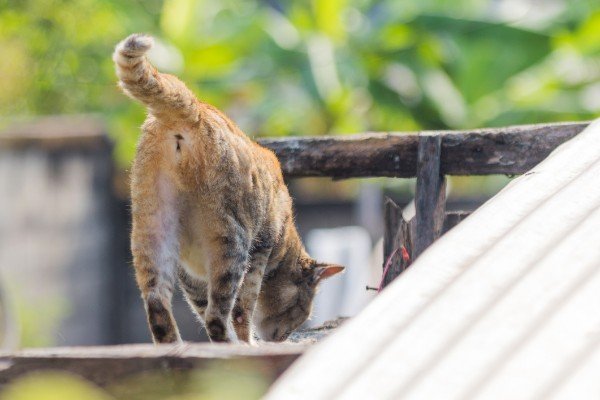
Normally, your cat will emit the fluid from these glands when they pass faeces and this is a way of communicating to other cats that the territory is taken.
When a cat is scared they may release their anal glands releasing an unpleasant smell.
The smell lingers for a few hours and can make your cat smell musky.
This may also happen when your cat is excited.
Although unusual, some cats have overactive anal glands and some cats’ anal glands become impacted, which can happen if the cat often has loose stools meaning the faeces don’t put enough pressure on the glands to release the fluid.
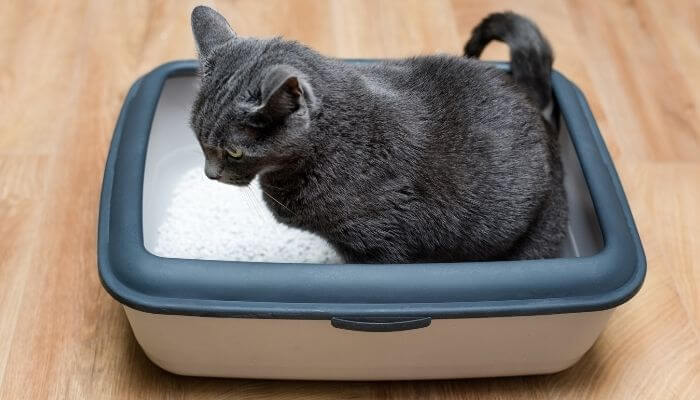
The anal glands can also become inflamed or infected and will be swollen and tender, this is uncomfortable for cats and they may try to ease the irritation by licking and biting the area or by scooting their rear end on the ground.
How & Why Do Cats Release Pheromones?
A cat has scent glands located on their head, paw pads, skin, and anal glands.
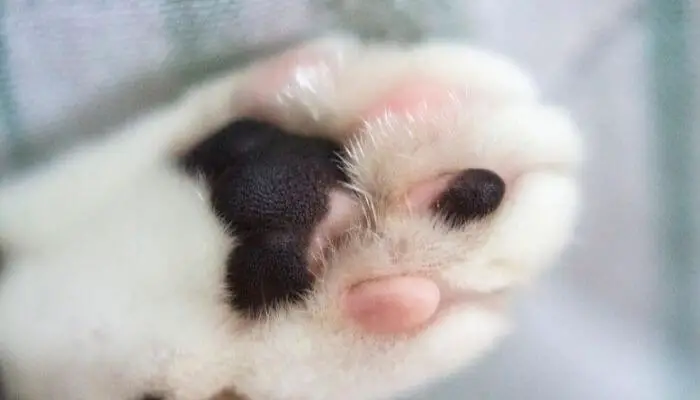
These scent glands secrete pheromones to communicate with other cats and the environment they are in. Pheromones can also be released through urine.
Pheromones are released from these glands around your cat’s body via a range of behaviours.
For example, pheromones are released when your cat scratches items, rubs their head or body against items, and when they spray urine.
Pheromones can be released for a variety of reasons including:
- Mark territory
- Create familiarity
- Identify other cats
- Increase bonds
- Find sexual partners
- Build bonds between mother cats and their kittens
- Indicate contentment
- Indicate stress/ fear
The specific chemical signals of the pheromone emitted by your cat will depend on the situation.
In general, the glands on your cat’s face release friendly pheromone messages so when your cat rubs their head or face against you they are releasing low-intensity pheromones that indicate bonding and represent comfort and familiarity.
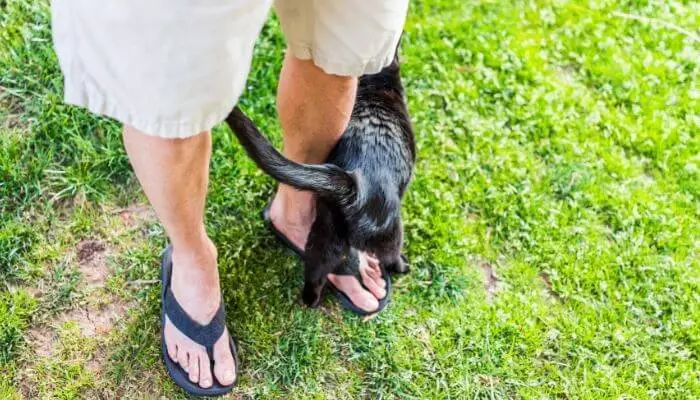
Cats will also rub their head against you when they are getting their favourite food or treats.
It is these friendly pheromones that are often replicated in synthetic pheromone products such as Feliway because the pheromones are reassuring and calming to cats.
On the other side of things, the pheromones from a cat’s anal glands are high-intensity and are used to express fear or stress, for marking territory, and for sexual viability.
In addition, fear pheromones can be released through the skin.
What do cat pheromones smell like?
Nothing!
Cat pheromones do not have a smell.
Rather than being a scent, pheromones are an odourless combination of chemicals that cats are able to interpret using their vomeronasal organ (AKA Jacobson’s organ).
Interestingly, cat pheromones do not smell of anything to cats either.
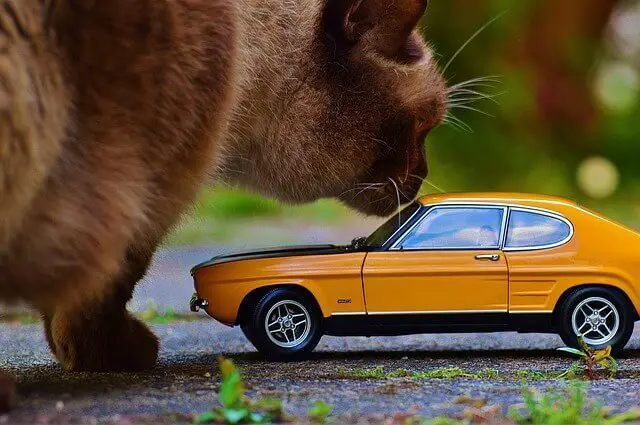
However cats can identify and interpret pheromones and the pheromones can be detected weeks after being released – although they will become weaker as time goes on.
Humans cannot smell cat pheromones and are not affected by them.
The smell of a cat marking their territory with urine comes from the ammonia in the urine rather than the presence of pheromones.
Rather than relying on scent, the chemical signals of pheromones are interpreted and identified by the vomeronasal organ.
When your cat is identifying pheromones they will exhibit the Flehmen’s behaviour.
This is when their upper lip retracts, the nostril closes and they inhale rapidly allowing the pheromones to move to the Jacobson’s organ.
Do Cats Express Glands When Happy?
While cats will usually express their glands when they are frightened, it may also happen when they are excited.
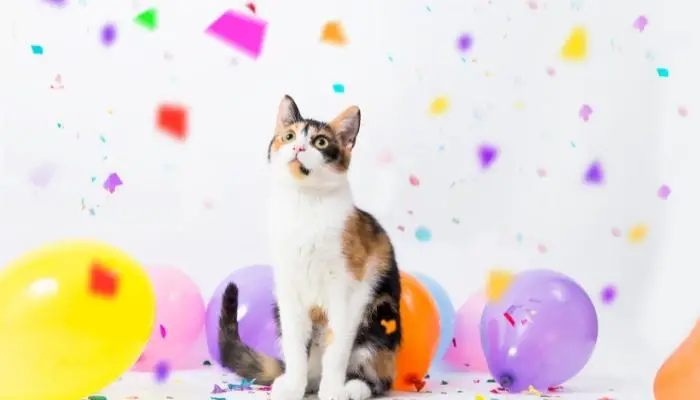
The smell that comes from the expressed glands tends to be musky or fishy and can linger for a few hours.
Sometimes cats express their anal glands when they are doing positive things that show they are happy and content.
Although this isn’t as common as expressing their anal glands due to fear or stress, it does happen.
For example, your cat may be kneading their blanket when they express their glands.
It is not known exactly why a cat may express their glands when they are happy, although it can be a way of marking territory.
There could be a medical explanation, for example, their glands may be full and are not being emptied regularly due to frequently passing loose stools.
If it is happening often and you’re concerned, it is worth taking your cat to the vet for a check-up.
If your cat is frequently emptying their glands we recommend you speak with a vet ASAP.
JustAnswer allows you to talk in real-time to veterinary experts for a small fee.
The vet will be able to ensure there is not a medical cause and will check the anal glands are not infected or impacted.




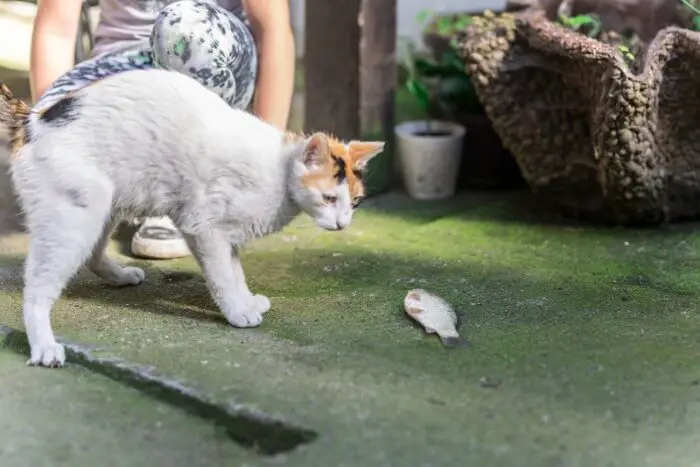
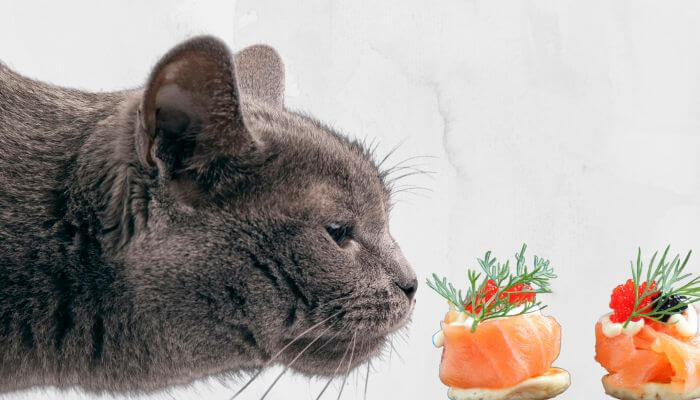
Leave a Comment